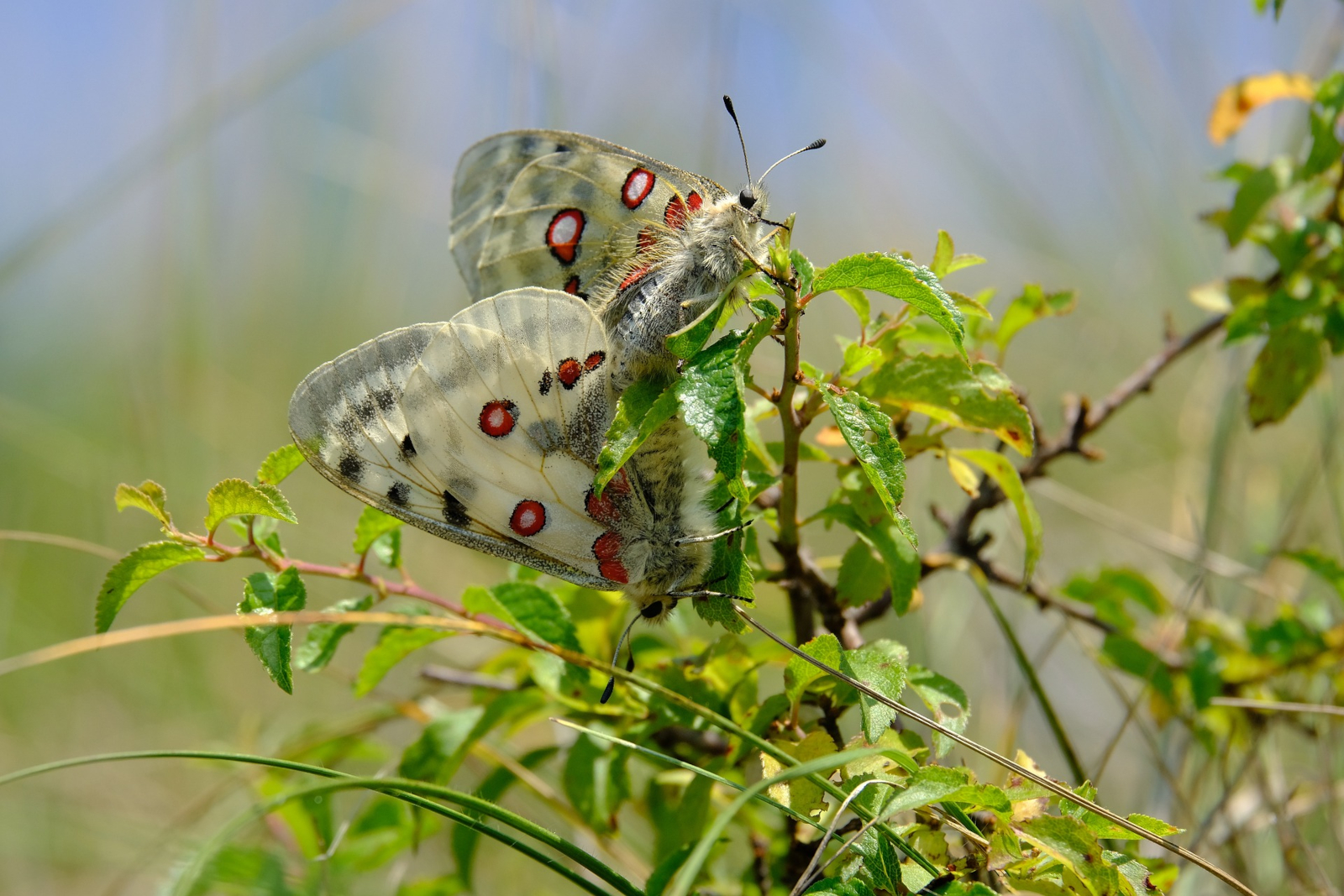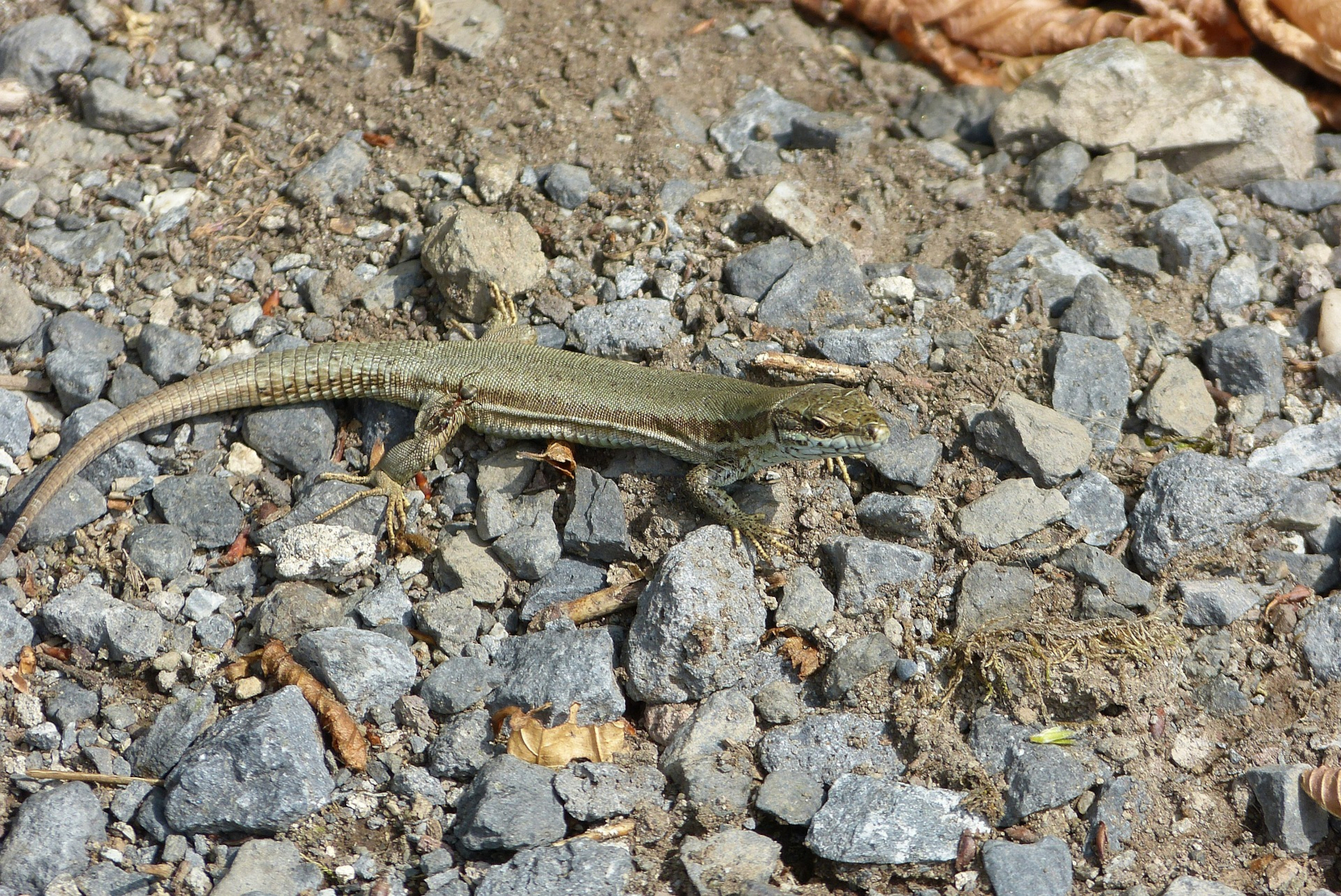Pesticides or climate change?
Population of the Apollo butterfly on the Lower Moselle endangered
17 December 2023
Werner Elflein
 Photo: Pixabay
Photo: PixabayIn the biological nomenclature, the Apollo butterfly is listed under the name Paranassius apollo. In the Lower Moselle valley, the subspecies Paranassius apollo vinningensis lives mainly in the steep vineyards between the municipality of Winningen and neighbouring Kobern. There are also notable populations in the Klotten Dortebach valley, on the Valwig Apolloweg and near Bremm. The Apollo butterfly is one of the most endangered butterfly species in Germany. It is the only non-tropical butterfly to be included in the Washington Convention.
For a long time, the Apollo butterfly symbolised the successful coexistence of ecology and viticulture. But now the butterfly species is seriously endangered. New pesticides that have been used in viticulture for the past ten years are said to be to blame. On closer inspection, however, the connections are much more complex.
After an extreme winter, the population of the Apollo butterfly on the Lower Moselle collapsed by 90 per cent in the summer of 2012. Since then, the number of butterflies has not recovered. On the contrary. In 2013 and 2014, the population was estimated at 500 to 750 butterflies again (in comparison: 1000 to 1500 in 2011). However, the population continued to decline in the following years. Between 2015 and 2018 to just 300 to 500 specimens, and since 2021 probably even to fewer than 200.
Butterfly experts blame the use of new pesticides for the dramatic decline. However, the pesticides they refer to were only used from 2013 onwards – and not every year. However, independent pesticide expert Lars Neumeister, who consults Greenpeace and the World Wide Fund For Nature (WWF), among others, believes that the active ingredients contained in these products are harmless to insects.
On the internet platform of the Lepiforum, an association dedicated to the collection of knowledge about all Central European butterfly species, butterfly enthusiasts are sounding the alarm. “You have to construct a scandal […] and […] give the media the click figures they urgently need,” writes a butterfly lover from Dinslaken. “With politicians, the best way to do this is to instrumentalise your political opponent. With factual letters, which are even answered by the ministry, you do not achieve what you need as quickly as possible.”
No sooner said than done. The Bund für Umwelt und Naturschutz Deutschland (BUND) jumped on the bandwagon and recently named the Apollo butterfly Butterfly of the Year 2024. In its press release published on 30 November 2023 with the lurid headline “Majestic butterfly threatened with extinction due to pesticide use”, the BUND ignores other possible causes of the butterfly's death from the outset – even though there is no evidence of any harmful effect of the pesticides. It seems as if the BUND and the mainstream media, which in their reporting uncritically ride on the wave of public sentiment against the helicopter spraying common on the Lower Moselle, are primarily concerned with their own profiling on the back of the Apollo butterfly and the steep-slope winegrowers.
Reinhard Löwenstein from the Heymann-Löwenstein winery in Winningen is annoyed by the one-sided reporting. Under the title “Save the Apollo butterfly”, he has written a text in which he opposes the “attack by fundamentalists on valuable steep-slope biotope”. For him, the changing climatic conditions play a particularly important role: “The development phases of the butterfly correlate less and less with the flowering of the food plants, the winters are too wet, the summers too dry.” Not good conditions for the survival of the butterfly.
The BUND calls for alternatives to the plant protection currently practised, but does not mention any by name. Organic viticulture (in the sense of the European Union legislation, which is undoubtedly worth discussing anyway) is reaching its limits in the steep vineyard terraces, not least for economic reasons. Löwenstein: “Terraced vineyards are [...] a cultural landscape created and maintained by humans over thousands of years. If vineyards are left to nature again, rampant undergrowth will suffocate the unique steep-slope flora and fauna within a few years. Our ancestors were confronted with this scenario 170 years ago, when viticulture came to an almost complete standstill due to diseases introduced from America. They were saved by the development of pesticides. The vines are still dependent on them.” – and also the Apollo butterfly, whose habitat would be even more threatened if plant protection were to be restricted or even stopped, as the fanatics are demanding.
Fellow winemaker Martin Gerlach from the von Schleinitz winery in Kobern-Gondorf agrees. For him, permanent greening of the mostly sparsely vegetated slate soils would be extremely counterproductive for the preservation of the Mediterranean flora and fauna that has existed for centuries. The amphibians living in the vineyards would lose the opportunity to regulate their body temperature on the stony soil warmed by the sun, and the Apollo butterfly would also find a changed food supply unsuitable for it.
 Photo: Pixabay
Photo: PixabayWhat speaks against a harmful effect of the pesticides: Apollo butterflies continue to be sighted directly in the vineyard plots where spraying takes place by helicopter. In contrast, according to Löwenstein, last summer “in some known hotspots far away from any possible drift [...] no butterfly could be counted despite scrub clearance.”
Biologist Dr Detlef Mader has been researching the population development of the Apollo butterfly for years and has documented it in several studies, most recently in 2022 under the title “Prolongation of the Apocalypse of the Moselle Apollo at the limit of extinction: stagnation, comeback or requiem?” The scientist attributes the “drastic population collapse of the Moselle Apollo, scarce swallowtail and other insects” to an Arctic permafrost period in February 2012 and the subsequent spring months, which had not been this cold for several decades. He attributes at best a marginal effect to the use of pesticides, which on the one hand would only explain a creeping or gradual decline and on the other hand in no way the temporary recovery of the population to up to 750 specimens in 2013.
For his studies, Mader meticulously analysed climate data from the past 200 years. For him, the current development is no coincidence, but correlates with the long-term climatic changes.
Another argument is also difficult to refute. In the past, helicopter spraying has only had a proven negative effect on the spread of the Apollo butterfly in the case of one pesticide, Dichlorodiphenyltrichloroethane (DDT). However, DDT has been banned since 1977.
One thing is certain: a narrow-minded dispute between fundamentalist pseudo-conservationists and winegrowers is not conducive to the undoubtedly existing common concern of saving the Apollo butterfly from extinction. After all, winegrowers are also concerned about the symbolic butterfly and are open to constructive suggestions.